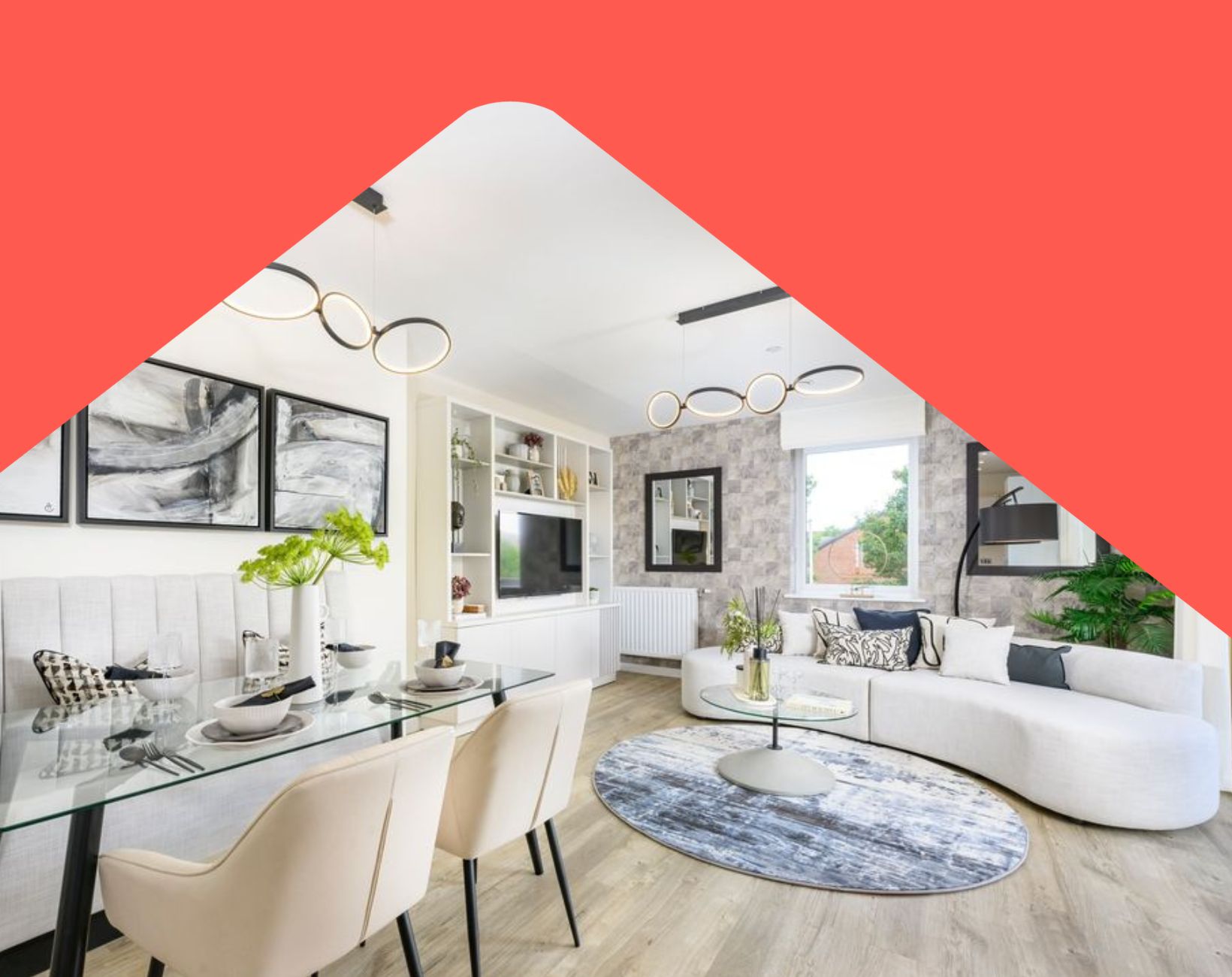Buying a new build home
Buying a home is a big deal. Whether you’re a first-time buyer or experienced mover, let’s take a look at the key steps to buying a new build home. It’s good to be prepared, after all…
The process of buying a new build home
Step 1:
Get a mortgage Agreement in Principle (AiP)
Step 2:
Find your new build home
Step 3:
Reserve your home
Step 4:
Instruct a conveyancing solicitor
Step 5:
Secure your mortgage
Step 6:
Personalise your home
Step 7:
Finalise legal paper word and exchange
Step 8:
Complete and pick up your keys!
A step by step guide to buying a home

Step 1: Get a mortgage Agreement in Principle (AiP)
If you are using a mortgage to buy your home, the first step to buying a new build home is securing a mortgage Agreement in Principle (AiP). This gives you a clear idea of how much you can borrow.
Most high street banks offer AiPs, and you can apply online or in person.
Remember, you’re not tied to the bank you get your AiP from — you can still shop around for the best mortgage deal later.
Step 2: Find your new build home
Start your search by using popular property portals – like Rightmove, Zoopla or New Homes for Sale – to explore new build developments in the area you’re looking to buy.
You can also visit specific builder websites for additional options or run a search on Google.

Step 3: Reserve your home
Once you’ve found the perfect home and secured your mortgage AiP it’s time to reserve your property. This will involve signing a reservation agreement and paying a fee to take the home off the market for an agreed length of time.
The reservation agreement will include key details, like estate management fees, the purchase price of your home, and the length of the reservation agreement. The developer will usually give you 28 days from reserving to exchange contracts.
Reservation fees range depending on the home builder and development, though are typically between £500 and £1,000. The fee will be deducted from the final price when you complete the purchase

Step 5: Secure your mortgage
Now that your home is reserved, it’s time to apply for a mortgage. You can apply for a mortgage directly with a lender or use a mortgage broker.
Many choose to use a specialist new build mortgage broker as they will be familiar with new build buying options and schemes – like Deposit Unlock and Own New.
As part of the mortgage application process, your chosen lender will conduct a home valuation. If your home hasn’t yet been built, this will be based on the home plans and specification provided by the home builder.
Step 6: Personalise your home
This is the fun bit! Depending on the build progress of your home when you reserve, you will be invited to choose your home finishes and upgrades. This is sometimes called an options or home finishing appointment.
During your options appointment, you will be able to review a range of material samples and choose elements of your home, like the kitchen cabinets and work surfaces, flooring, tiling and more.
“We’ve been able to select all our fixtures and fittings and have chosen to have our kitchen appliances, flooring and carpet fitted so that the house is ready to move into as soon as we complete.”
Step 7: Finalise legal work and exchange contracts
The legal process includes tasks like signing contracts, conducting local authority searches, and checking the Land Registry for any issues.
Your conveyancer will manage all of the legal paperwork and process, keeping you informed at every step. Once the legal work is complete, you’ll exchange contracts and pay your deposit.

Step 8: Complete and pick up your keys!
When your new build has been built and signed off by the developer, you’ll agree a completion date.
Completion day marks the end of the buying process as this is when the ownership of the home will officially be transferred over to you. If you’re buying with a mortgage, your solicitor will request the funds from your lender and transfer them to the developer.
Once the funds are received the keys will be released and ready for you to pick up ready to start your next chapter in your new home.
New build warranties and builder guarantees
As a new-build homeowner you will benefit from aftercare offered by your new build developer. This usually includes a 2-year aftercare to resolve any defects, and a 10 year structural warranty. Plus, the majority of home builders in England and Wales voluntarily register with a consumer code to offer their customer additional protection.
Join us on social media
If you have any questions about the content, please contact the team at [email protected]
